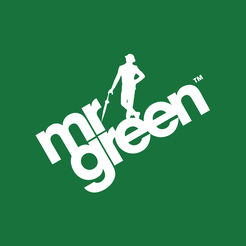2020 Royal Ascot Betting
The 2020 Royal Ascot meeting hosts at least one Group 1 race each day, these are the key races:
Royal Ascot Day 1: Tuesday 16 June – the opening day features three Group 1 races, the opening race the Queen Anne Stakes, a 1 mile flat race, the King’s Stand Stakes, a 5f sprint, and the St. James’s Palace Stakes, a 1 mile flat race.
Royal Ascot Day 2: Wednesday 17 June – Wednesday will be headlined by the Prince of Wales’s Stakes, a 1 mile 1 furlong and 212 yards flat race, followed by the Royal Hunt Cup, a 1 mile flat race.
Royal Ascot Day 3: Thursday 18 June – Thursday the stamina-sapping Ascot Gold Cup is the feature race at 2 miles 3 furlongs.
Royal Ascot Day 4: Friday 19 June – Friday hosts the Commonwealth Cup, a 6 furlong sprint, and the Coronation Stakes a 7 furlong and 213 yards sprint.
Royal Ascot Day 5: Saturday 20 June – Saturday brings the last Group 1 race of the meeting the Diamond Jubilee Stakes a 6 furlong sprint.
Looking for Royal Ascot Free Bets or a free flutter on the big race Royal Ascot Gold Cup Free Bets.
2020 Royal Ascot
Ascot Racecourse is in Ascot, Berkshire England and is one of the leading racecourses in the UK. It enjoys a close association with the British Royal Family as it is only six miles from Windsor Castle.
The Royal Ascot horse race meeting dates back to 1711 when it was founded by Queen Anne and still now every year Royal Ascot is attended by the Queen and her family. Members of the British Royal Family arrive each day in a horse-drawn carriage with the Royal procession taking place at the start of each race day and the raising of the Queen’s Royal Standard.
The Royal Ascot horse race meeting is a major event in the British social calendar, and press coverage of the attendees and what they are wearing often exceeds coverage of the actual racing. There are three enclosures attended by guests on Royal Ascot week.
The Royal Enclosure is the most prestigious of the three enclosures, with recent visits from the Queen and Royal Family members. Access to the Royal Enclosure is restricted, with high security on the day.
The Royal Meeting held each June is the centrepiece of the racecourse’s year with its highlight being The Gold Cup, a Group 1 flat horse race in Great Britain open to horses aged four years or older. It is run at Ascot over a distance of 2 miles and 4 furlongs (4,023 metres), and it is scheduled to take place each year in June.
It is Britain’s most prestigious event for “stayers” – horses which specialise in racing over long distances. It is traditionally held on day three of the Royal Ascot meeting, which is known colloquially (but not officially) as Ladies’ Day.
Sagaro was one of the stand out winners at Ascot dominating the Gold Cup race during his prime. This French trained horse won three years back to back from 1995 to 1977 and put his name into the record books.
In terms of trainers, Henry Cecil was one to follow in the Gold Cup as he had four winners on the bounce between 1979 and 1982 with Le Moss and Ardross winning consecutive races each.
In more recent years we have seen Aidan O’Brien and his Ballydoyle stable dominate the Ascot Gold Cup with the Irish trainer saddling no less than five winners of the race since 2006. Most of that success has been down to one horse with the legendary Yeats winning the race on four consecutive occasions. When Yeats won his fourth Gold Cup at Ascot racecourse in 2009 he became the most successful horse in the history of the race and his achievements earned him a statue at the Berkshire track.
The success of Yeats has really helped given the Gold Cup a boost with the race now firmly back where it belongs as one of the great races on the British racing calendar.
Over 300,000 people make the annual visit to Berkshire during Royal Ascot week, making this Europe’s best-attended race meeting. There are eighteen group races on offer, with at least one Group One event on each of the five days. The Gold Cup is on Ladies’ Day on the Thursday.
In 2012, the Golden Jubilee Stakes was renamed the Diamond Jubilee Stakes, to commemorate Queen Elizabeth II’s Diamond Jubilee.
In 2013, the Windsor Forest Stakes was renamed the Duke of Cambridge Stakes, with the Queen’s consent, recognising the new title given to Prince William.
In 2015, the newly created Commonwealth Cup became the eighth Group One race at Royal Ascot, replacing the Buckingham Palace Stakes.
In 2016, The Gold Cup was run as “The Gold Cup in Honour of The Queen’s 90th Birthday”.
Ascot today stages twenty-six days of racing over the course of the year, comprising eighteen flat meetings held between the months of May and October inclusive. It also stages important jump racing throughout the winter months.
The 2020 Royal Ascot Horse Race meeting will be held over 5 days between 16 June 2020 and 20 June 2020.
